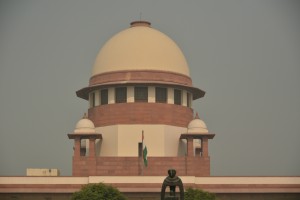Supreme Court: In the matter where the accused persons has sought for recall of the witnesses under Section 311 read with Section 231(2) CrPC on the ground of illness of the counsel, the Bench of Dipak Misra and U.U. Lalit, JJ held that recalling of witnesses as envisaged under the said statutory provision on the grounds that accused persons are in custody, the prosecution was allowed to recall some of its witnesses earlier, the counsel was ill and magnanimity commands fairness should be shown, are not acceptable in the obtaining factual matrix. considering the fact that a number of counsels were engaged by the defence, the Court held that in such a situation recalling of witnesses indubitably cannot form the foundation. If it is accepted as a ground, there would be possibility of a retrial. There may be an occasion when such a ground may weigh with the court, but definitely the instant case does not arouse the judicial conscience within the established norms of Section 311 CrPC for exercise of such jurisdiction.
Referring to a series of decisions where it was held that a liberal approach needs to be followed while allowing the recall of witnessed, the Court said that the decisions which have used the words that the court should be magnanimous, needless to give special emphasis, did not mean to convey individual generosity or magnanimity which is founded on any kind of fanciful notion. It has to be applied on the basis of judicially established and accepted principles. The approach may be liberal but that does not necessarily mean “the liberal approach” shall be the rule and all other parameters shall become exceptions. Recall of some witnesses by the prosecution at one point of time, can never be ground to entertain a petition by the defence though no acceptable ground is made out. It is not an arithmetical distribution. This kind of reasoning can be dangerous.
The Court further said that a criminal trial does not singularly centres around the accused. In it there is involvement of the prosecution, the victim and the victim represents the collective. The cry of the collective may not be uttered in decibels which is physically audible in the court premises, but the Court has to remain sensitive to such silent cries and the agonies, for the society seeks justice. Therefore, a balance has to be struck.
In the case at hand, the prosecution had examined all the witnesses. The statements of all the accused persons, i.e. 148 in number, had been recorded under Section 313 CrPC and the defence had examined 15 witnesses. Taking note of these facts, the Court said that the foundation for recall, as is evincible from the applications filed, does not even remotely make out a case that such recalling is necessary for just decision of the case or to arrive at the truth. [State of Haryana v. Ram Mehar, 2016 SCC OnLine SC 857, decided on 24.08.2016]

